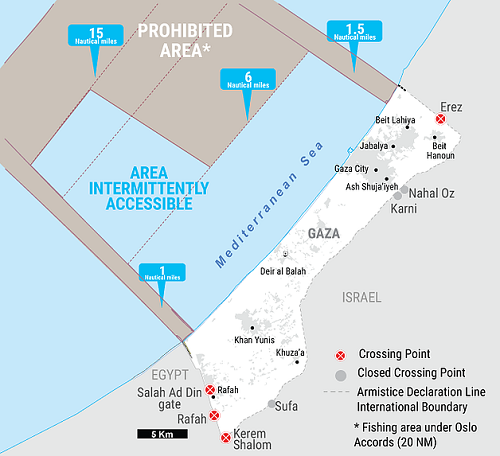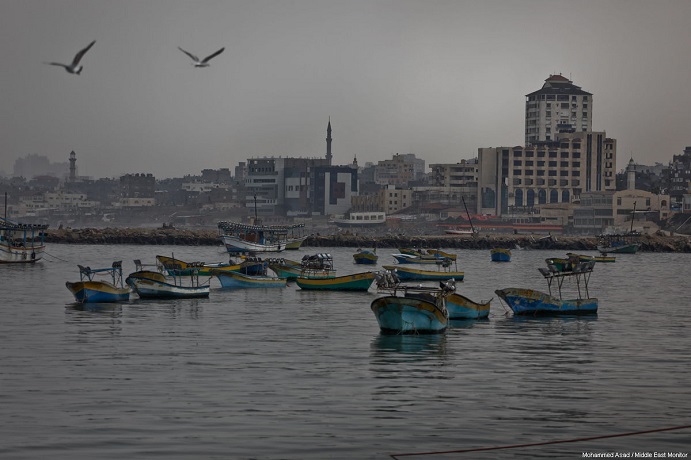OCHA / September 18, 2020
UN Office for the Coordination of Human Assistance (OCHA)
Monthly Highlights
- A strict lockdown was imposed by the local authorities in Gaza, following the detection of the first COVID-19 cases outside quarantine centres on 24 August.
- Intermittent hostilities in Gaza and southern Israel resulted in injuries and significant property damage on both sides.
- In response to the escalation, the Israeli authorities reduced the permissible fishing zone and halted the entry of most goods to Gaza, including fuel, leading to the shutdown of the Gaza Power Plant (GPP) and triggering power cuts for up to 20 hours a day.
- The Rafah passenger crossing with Egypt was reopened in both directions for three days, alongside a sharp increase in the entry of goods from Egypt throughout the month.
gaza_key_trends_and_indicators_august_2020 
Protection of civilians and casualties
- From 12 August and through the end of the month, Palestinians launched incendiary balloons and projectiles at southern Israel, and the Israeli military carried out air strikes and tank shelling in Gaza. Calm was restored on 31 August, through international mediation.
- Twelve Palestinians, including four children, and six Israelis were injured during the escalation. Large farmland areas in Israel were burned, while several homes and a school adjacent to military posts in Gaza sustained damage.
- On at least 79 occasions, Israeli forces opened warning fire at Palestinians near the perimeter fence and off the Gaza coast, a 58 per cent increase compared with July. One fisherman was injured, while the livelihoods of farmers and fisherfolks were disrupted.
Access
- Only 417 exits of people through the Israeli-controlled Erez Crossing were recorded in August, the majority of which were by patients referred to hospitals in the West Bank, and their companions. The issuance of exit permits for patients continued to be impaired by the halt of coordination between the Palestinian and Israeli authorities.
- Some 300 people entered Gaza via Erez, roughly the same as in July, and were sent by the local authorities to 21 days of mandatory quarantine.
- On 11 August, following three months of complete closure, the Rafah Crossing with Egypt re-opened in both directions for three consecutive days, allowing entry into Gaza of 1,851 people and exit to Egypt of 1,142 others.
- Due to restrictions on the entry of goods via the Kerem Shalom Crossing in the second half of the month, the volume of imports via Israel declined by nearly 56 per cent compared with July.
- In parallel, goods entering via the Rafah Crossing with Egypt almost tripled compared with the previous month (1,291 vs. 348 truckloads). The bulk of the increase consisted of construction materials.
- A total of 108 truckloads, carrying mostly agricultural produce and clothes, exited Gaza through Israel, a 45 per cent below the previous month’s figure.
- During the hostilities, Israel reduced the permissible fishing area along Gaza’s coast to eight nautical miles and subsequently prohibited access to the sea entirely, affecting the livelihoods of over 50,000 people depending on fishing to earn a living.













